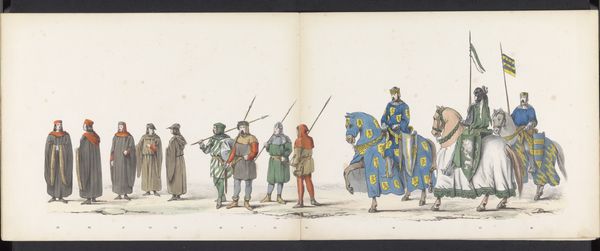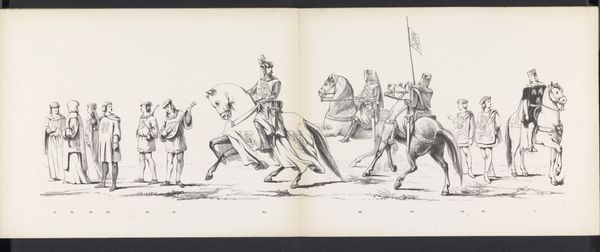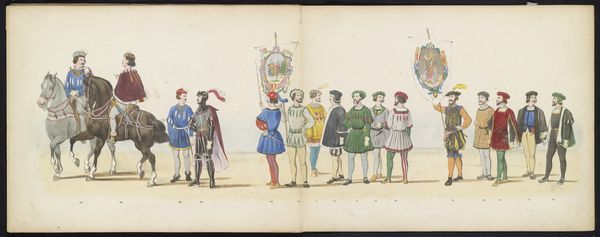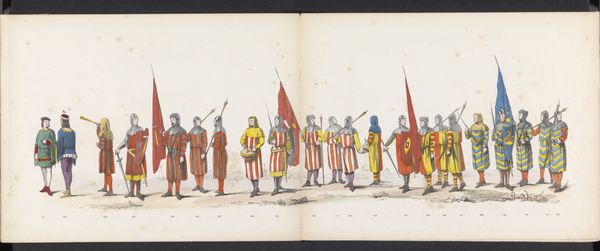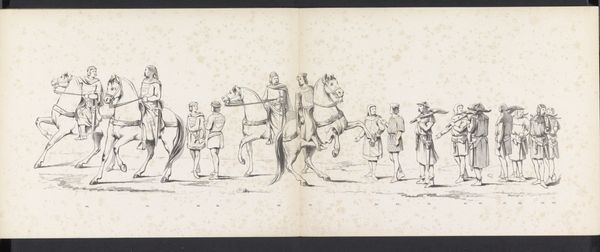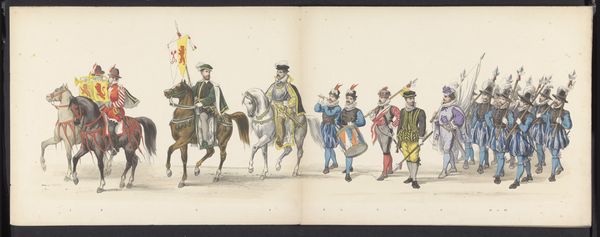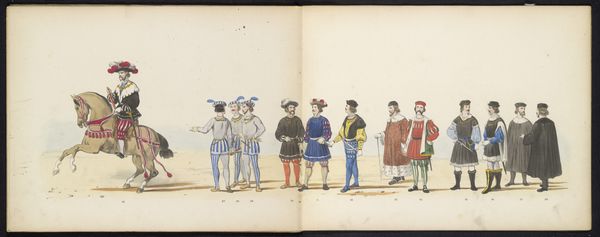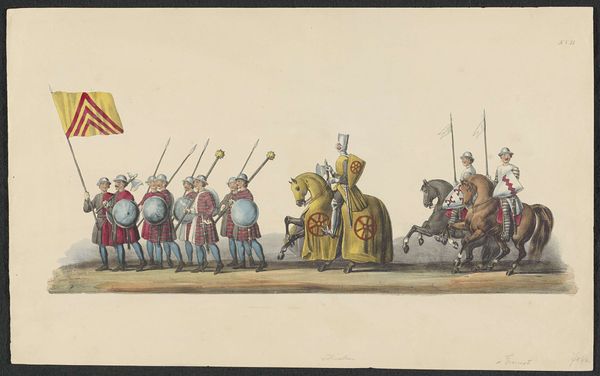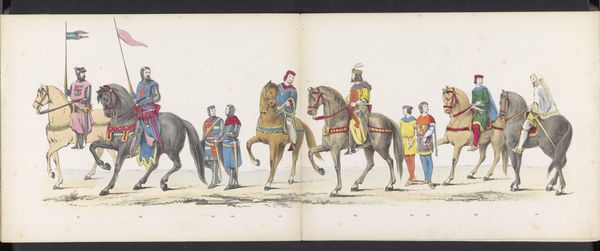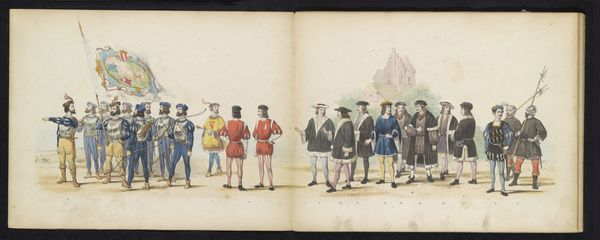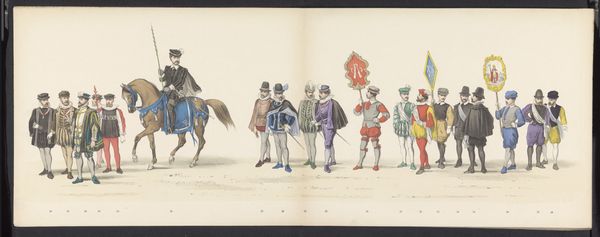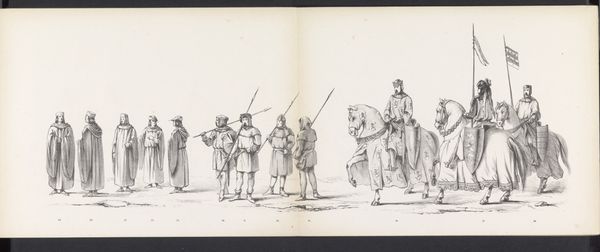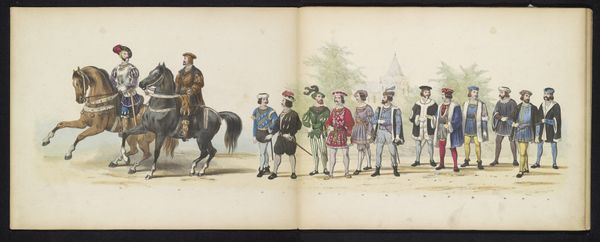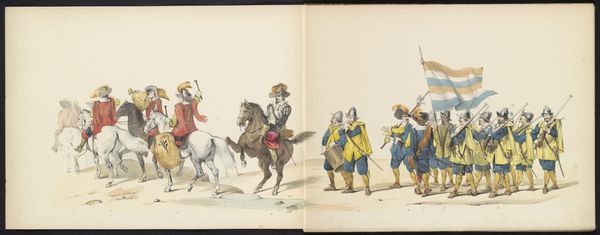
Maskerade van de Leidse studenten, 1865 (plaat 6) 1865
0:00
0:00
drawing, print, etching
#
drawing
#
imaginative character sketch
#
medieval
#
quirky sketch
#
narrative-art
# print
#
etching
#
sketch book
#
personal sketchbook
#
pen-ink sketch
#
sketchbook drawing
#
genre-painting
#
history-painting
#
storyboard and sketchbook work
#
academic-art
#
fashion sketch
#
sketchbook art
#
fantasy sketch
#
realism
Dimensions: height 275 mm, width 720 mm
Copyright: Rijks Museum: Open Domain
Curator: What a delightful scene. My first thought is that it seems straight out of a child's storybook, all heraldry and bright color! Editor: Indeed. We're looking at a print entitled "Maskerade van de Leidse studenten, 1865 (plaat 6)" by Jan Daniël Cornelis Carel Willem baron de Constant Rebecque, created in 1865. It looks like a drawing, with etching enhancing the lines. The overall feel certainly pulls toward narrative art and I find elements of genre painting in it. Curator: I agree. It’s the flat, bright color that hits me. Not naturalistic at all! More like imagined finery, as if they’re dressing up like knights, playing games of history. Editor: Considering Constant Rebecque's broader work, it's not unreasonable to suggest this piece is part of a larger commentary on the role of the aristocracy and historical reenactment in shaping Dutch national identity during the 19th century. The medieval style, while possibly superficial, speaks to an idealized past. Curator: Idealized indeed. Though something about the stiffness of the figures, even with the attempt at pomp, gives it a satirical edge. It’s almost too colourful, too regimented. Editor: I see your point. While it superficially embraces academic art and even realism, the figures seem oddly posed, reminiscent of actors in a play rather than participants in a historical event. Perhaps the artist intended some subtle social commentary. How do we read student masquerades through the lens of artistic and societal critiques? Curator: Perhaps that’s it then! I wonder if it touches on the social dynamics inherent in student life, those peculiar hierarchies played out in traditions, and sometimes bordering on absurd. I get this strange blend of sincere homage and sly humor that just tickles my mind. Editor: It raises the question of how historical imagery gets used—or perhaps co-opted—in celebrations of identity, be that personal or national. It suggests these students are consciously shaping their own identities by drawing on an imaginary past, reflecting societal anxieties about modernity, industrialization, and social mobility. Curator: Ah, modernity rearing its anxious head! I love how a simple drawing of students can unlock so much. This little page holds a carnival of ideas, doesn't it? Editor: Absolutely. It is a complex dialogue captured in simple lines and colors, reflecting not just artistic style, but cultural and historical forces at play.
Comments
No comments
Be the first to comment and join the conversation on the ultimate creative platform.
